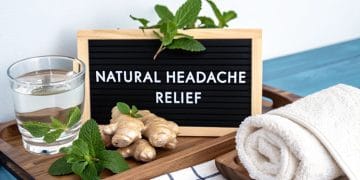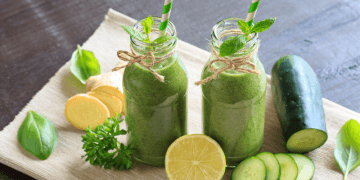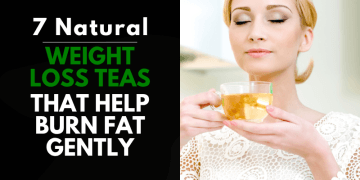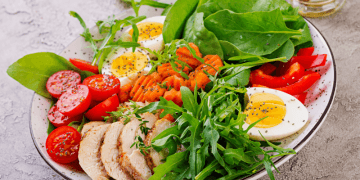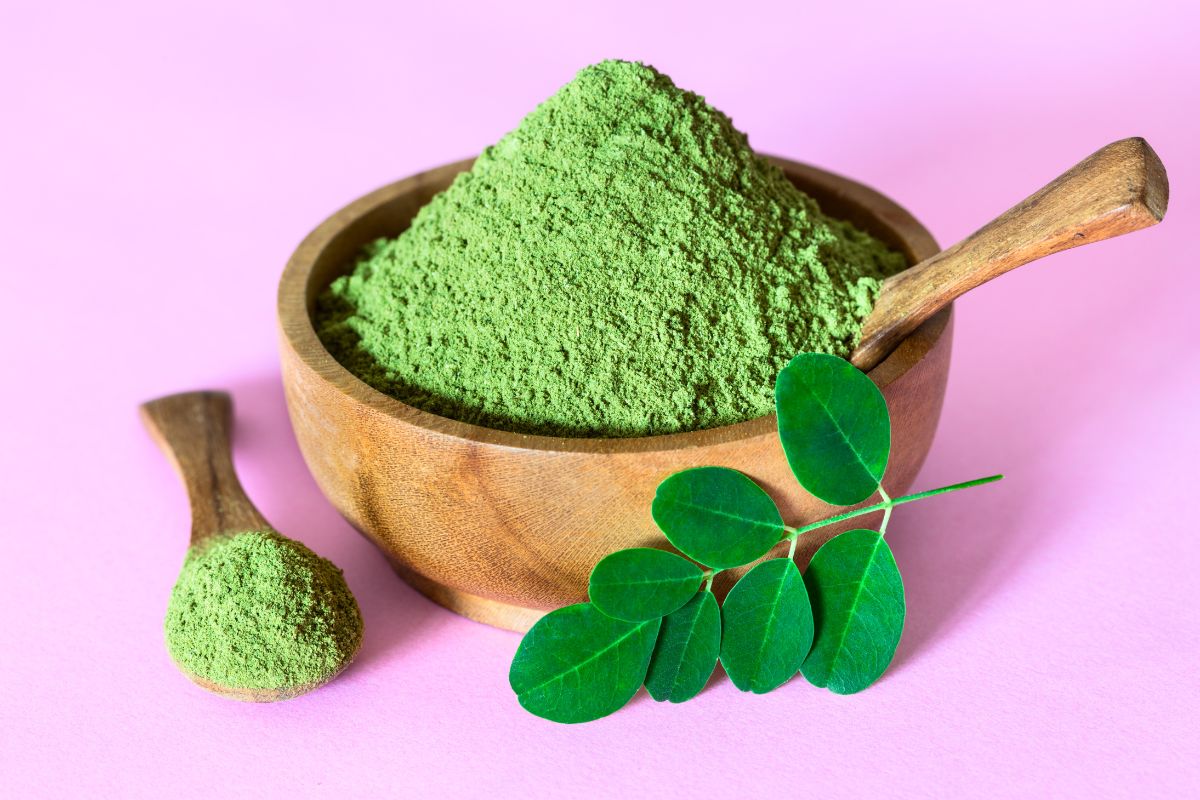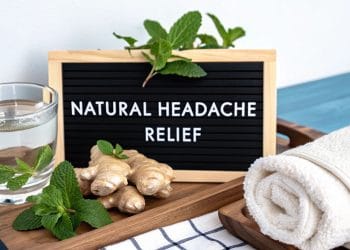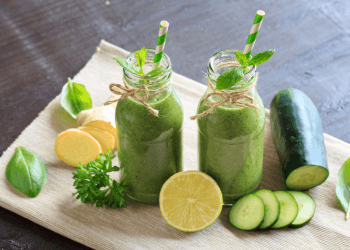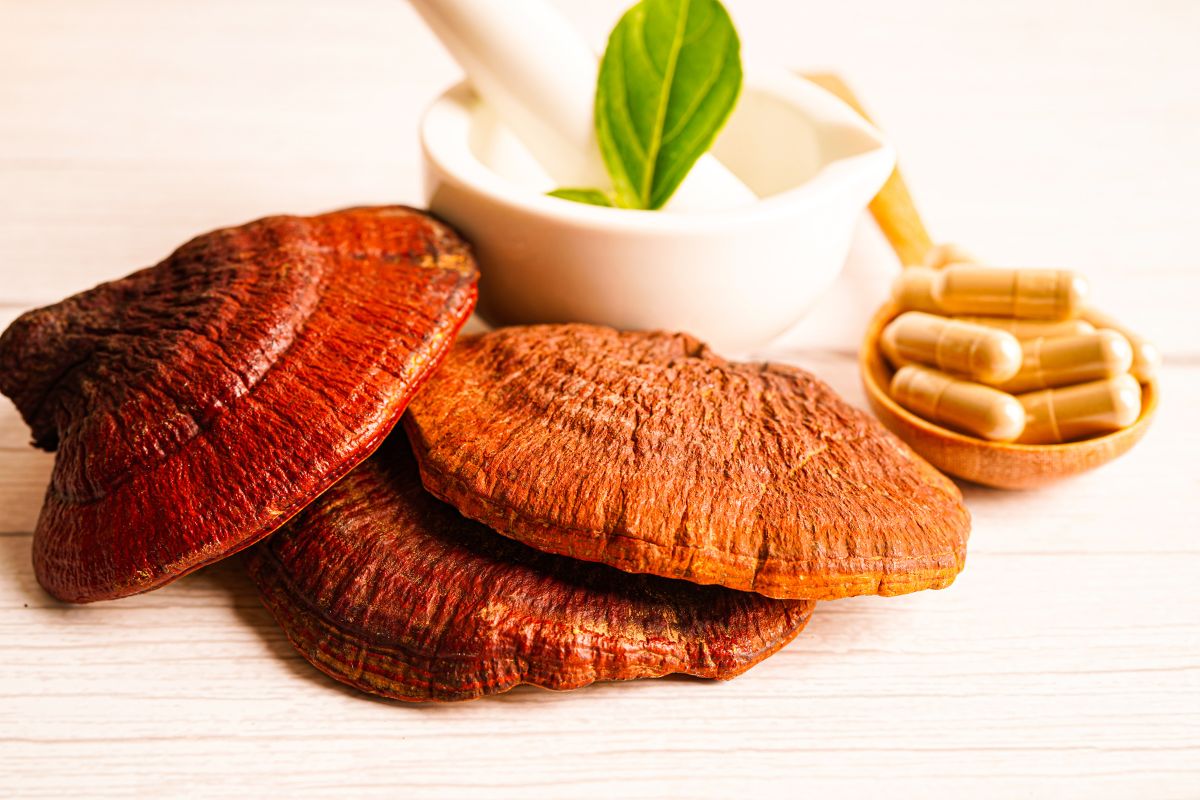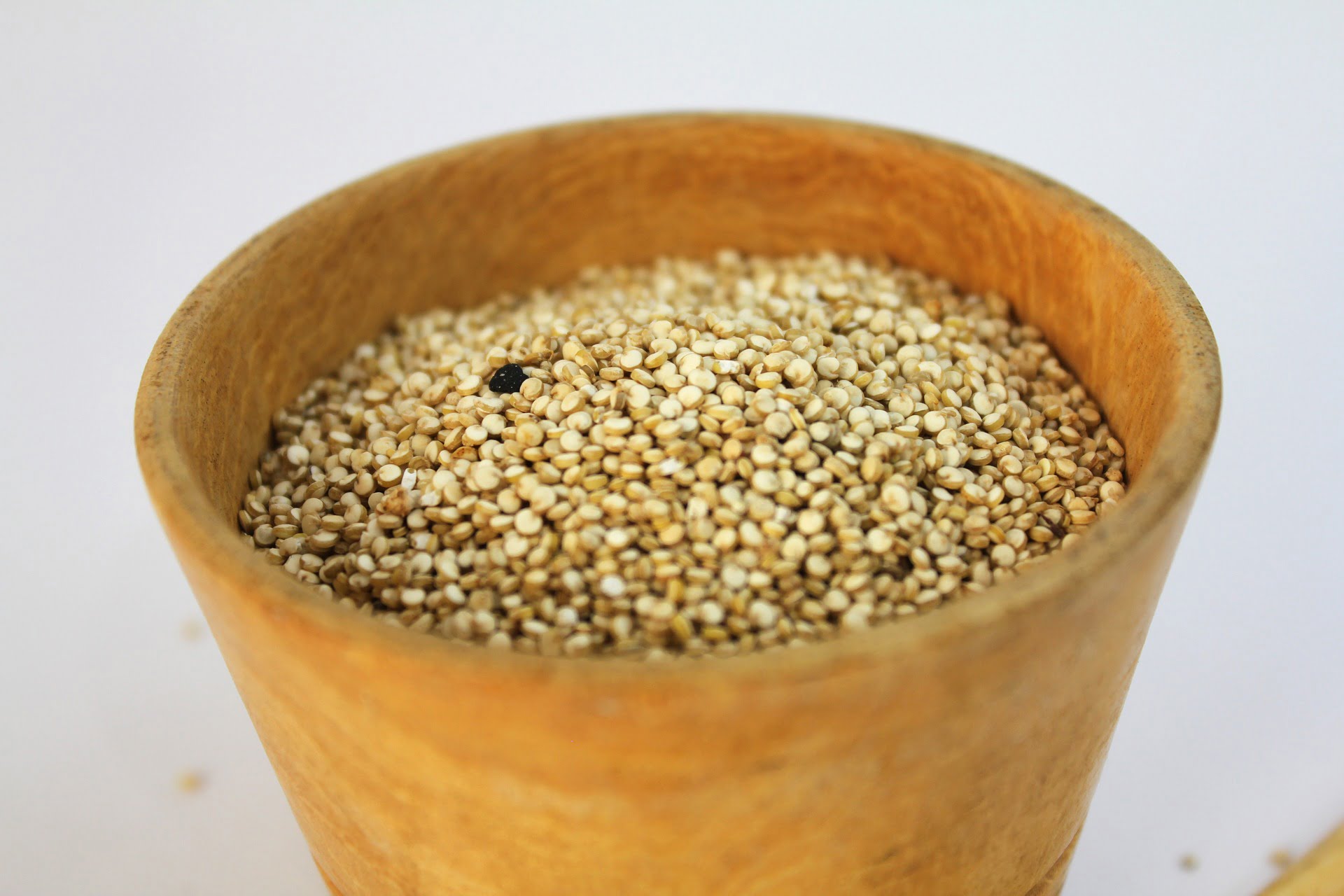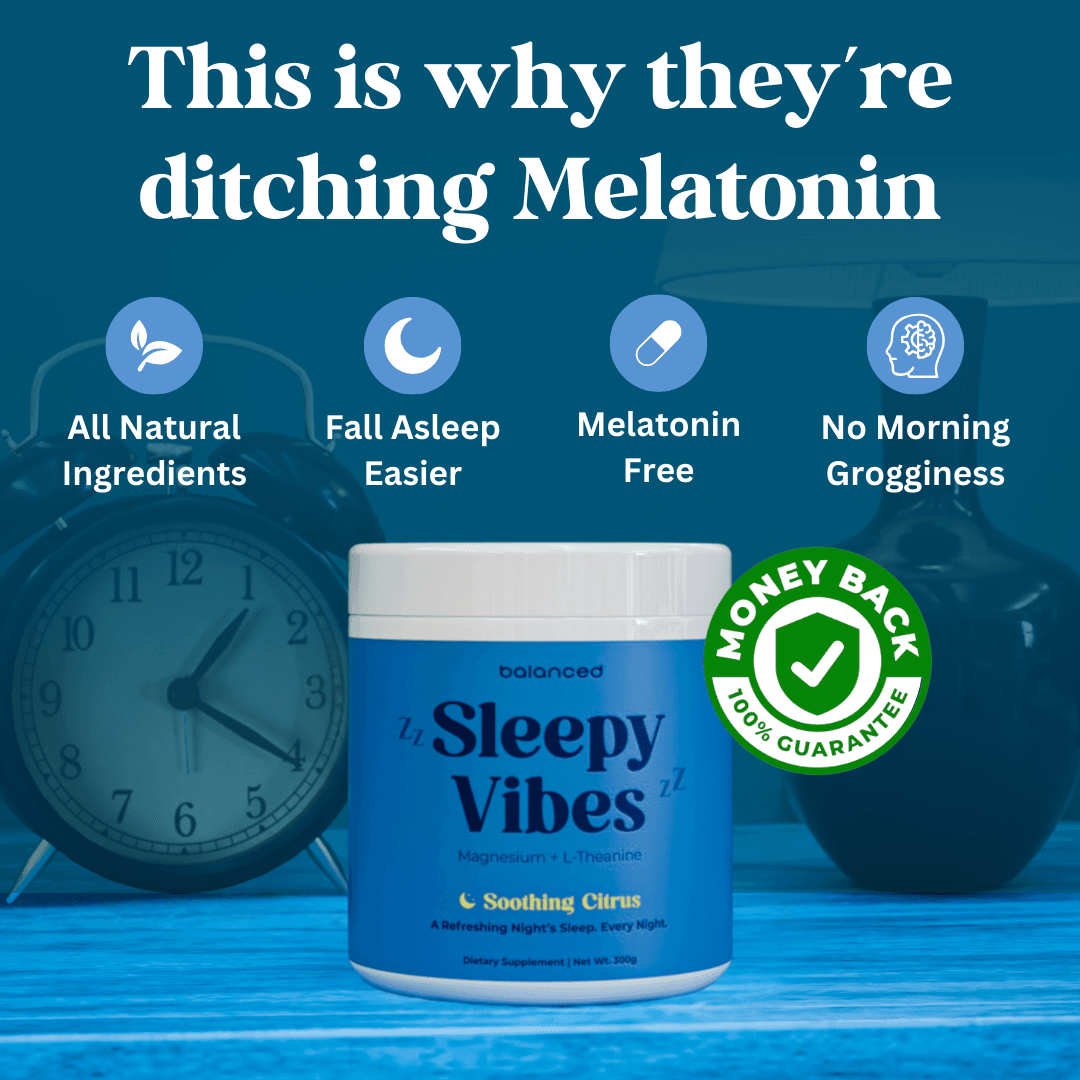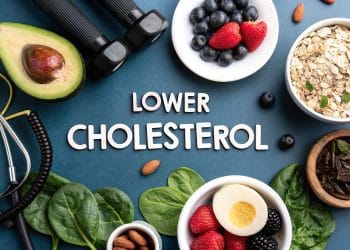Last Updated on June 16, 2025 by Lauretta Iyamu, PharmD
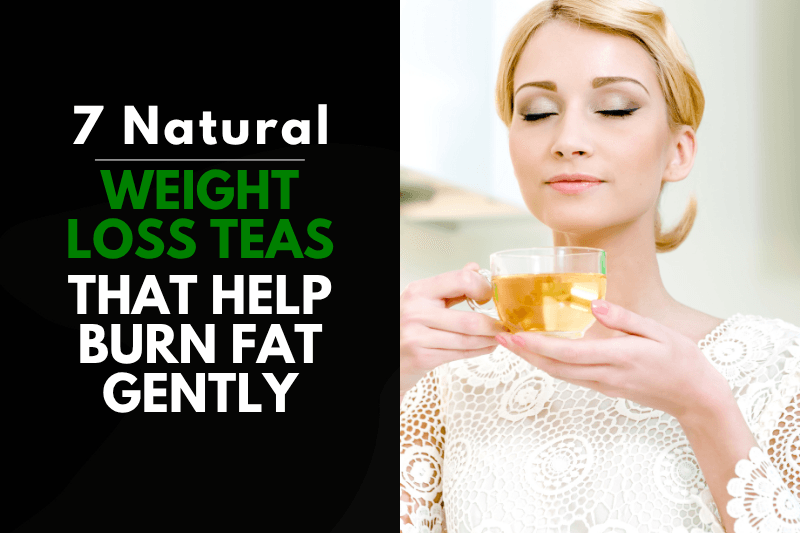 What if you could burn fat just by sipping a hot cup of tea?
What if you could burn fat just by sipping a hot cup of tea?
It might sound too simple, but science says otherwise.
Certain herbal and traditional teas are packed with natural compounds that quietly go to work behind the scenes.
These weight loss teas help you increase metabolism, suppress appetite, and reduce fat storage.
The best part?
They’re gentle, effective, and delicious, making them the perfect partner for your long-term wellness routine.
So if you’re done with crash diets or stimulant-packed weight loss pills, it’s time to consider a more sustainable, science-backed approach.
Let’s take a closer look at why these teas work and which seven natural weight loss teas belong in your daily routine.
How Does Tea Help You Burn Fat Naturally?
Certain teas contain compounds like catechins, caffeine, and polyphenols [1].
These natural substances help your body:
- Burn fat more efficiently
- Block fat absorption
- Increase thermogenesis (calorie burn)
- Suppress appetite naturally
- Balance blood sugar levels
- Lower inflammation and bloating
In short, your metabolism starts running more smoothly and efficiently.
What Is Thermogenesis and Why Does It Matter?
Thermogenesis is your body’s natural fat-burning process.
Some teas activate this process, causing you to burn more calories even while at rest.
It’s one reason green tea and oolong are so often included in fat-burning protocols.
Why Tea Is Gentler Than Pills?
Unlike many weight loss supplements that can spike your heart rate or stress your system, these teas:
- Work with your body’s natural rhythms
- Are free from harsh chemicals
- Offer additional benefits, such as improved digestion, stress reduction, and detoxification.
When Should You Drink Tea for Weight Loss?
Most teas work best when you:
- Start your day with metabolism-boosting teas (green or oolong)
- Drink after meals to aid digestion (pu-erh or hibiscus)
- Unwind in the evening with stress-lowering blends (rooibos or white tea)
Let’s move on to the 7 best fat-burning teas that help you lose weight gently and naturally.
The 7 Best Natural Weight Loss Teas (And How They Burn Fat Gently)

1. Green Tea
Green tea is the most researched fat-burning tea and for good reason.
It contains EGCG (epigallocatechin gallate), a powerful antioxidant that:
- Boosts metabolism
- Enhances fat oxidation
- Supports liver detoxification
A study in the American Journal of Clinical Nutrition found that green tea increased fat burning by 17% during moderate exercise.
Best Types: Matcha, Sencha, Gyokuro
When to drink: In the morning or 30 minutes before a workout
How it helps: Jumpstarts metabolism and enhances energy naturally
2. Oolong Tea
Oolong sits between green and black tea and is known for its ability to:
- Block fat absorption by up to 70%
- Stimulate fat-burning enzymes
- Improve digestion and energy
Studies show that people who drank oolong tea daily for six weeks lost more weight than those who didn’t.
Best Types: Tieguanyin, Wuyi Rock Oolong
When to drink: Mid-morning or before a meal
How it helps: Breaks down stored fat and prevents the accumulation of new fat.
3. Pu-erh Tea
This fermented Chinese tea is rich in polyphenols and microbes that:
- Reduce fat synthesis
- Improve gut health
- Decrease bad cholesterol (LDL)
Its earthy flavor and metabolism-revving effects make it a favorite in traditional medicine.
Best Types: Raw (Sheng) or Ripe (Shou) Pu-erh
When to drink: After meals or in the afternoon
How it helps: Improves digestion and fat breakdown
4. White Tea
White tea is the most delicate of all, but still powerful.
It’s been shown to:
- Prevent the formation of new fat cells
- Protect existing fat-burning cells from oxidative stress
- Support collagen and skin health during weight loss
Best Types: Silver Needle, White Peony
When to drink: Late morning or evening
How it helps: Gently supports metabolism without overstimulating
5. Hibiscus Tea
Want to reduce bloating fast?
Hibiscus tea is rich in anthocyanins and vitamin C, making it ideal for:
- Flushing excess water
- Supporting liver detox
- Reducing cravings linked to hormonal stress
It’s caffeine-free, making it an excellent option for evening use.
Best Types: Pure dried hibiscus petals or hibiscus blends
When to drink: After meals or before bed
How it helps: Reduces fluid retention and supports healthy digestion

6. Yerba Mate
Popular in South America, yerba mate provides a gentle caffeine lift along with:
- Appetite suppression
- Improved focus
- Enhanced physical performance
It contains xanthines and theobromine, which help activate fat-burning pathways.
Best Types: Traditional loose-leaf or organic blends
When to drink: Morning or before workouts
How it helps: Boosts energy and fat metabolism without jitters
7. Rooibos Tea
Rooibos is a caffeine-free red tea from South Africa packed with aspalathin, a compound that:
- Reduces cortisol (stress hormone)
- Balances blood sugar
- Helps curb emotional eating
Its naturally sweet flavor makes it ideal for sugar cravings.
Best Types: Organic loose-leaf rooibos
When to drink: Before bed or during high-stress moments
How it helps: Fights stress-related fat gain and promotes calm
How to Maximize Weight Loss Results with Tea
Drinking the right teas is just the beginning.
Here’s how to make them work even harder for you:
- Stick to 2 to 3 cups daily (spaced out across the day)
- Start with 1–2 types, then rotate to prevent taste fatigue
- Add metabolism-friendly boosters like lemon, ginger, or cinnamon
- Drink 30 minutes before meals to reduce appetite and enhance digestion
- Avoid adding sugar, opt for stevia, or go unsweetened
- Track your progress to see what works best for your body
Pro Tip: Combine green tea in the morning with rooibos at night to boost energy early and reduce cortisol before bed.
Tea Blending Recipes for Enhanced Fat Burning
Want faster results with better flavor?
Try these powerful combos:
1. Morning Metabolism Booster
Green tea + lemon + pinch of cayenne
2. Pre-Workout Energy Tea
Yerba mate + mint + ginger
3. After-Meal Digestive Blend
Pu-erh + fennel + cinnamon
4. Evening Fat-Burning Calm
Rooibos + hibiscus + a slice of orange peel
5. Weekend Detox Blend
White tea + dandelion root + spearmint
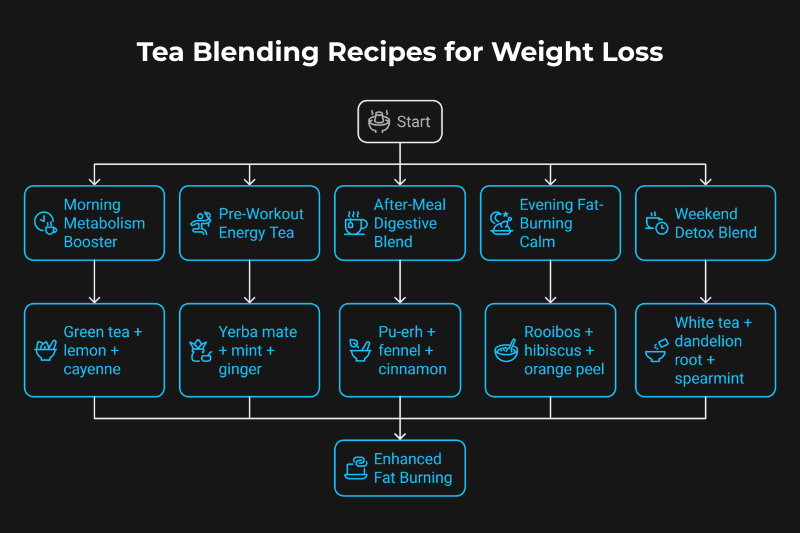
Common Mistakes That Reduce Tea’s Effectiveness
If tea hasn’t worked for you yet, check for these common issues:
- Using low-quality tea bags instead of loose-leaf tea
- Oversteeping, which can destroy fat-burning compounds
- Adding sugar or milk, which blunts the benefits
- Drinking too close to meals, which may interfere with absorption
- Being inconsistent in daily use matters
- Expecting instant results without dietary or lifestyle support
Remember, tea is a supportive tool, not a miracle cure.
Supporting Your Tea Routine with Healthy Habits
To truly see results, support your tea drinking with:
- Fiber-rich, whole foods (veggies, legumes, berries)
- Protein at every meal to balance blood sugar
- 30 minutes of daily movement, even light walking
- Adequate hydration, tea isn’t a full water replacement
- 7 to 8 hours of quality sleep
- Mindful eating, slow down, and listen to your body
Safety Considerations and Who Should Avoid Certain Teas
Natural doesn’t always mean risk-free.
Here’s what to keep in mind:
- Limit caffeine intake if sensitive. Stick with rooibos or hibiscus
- Avoid yerba mate late in the day if you have sleep issues
- Consult your doctor if you’re on medication or have liver/kidney issues
- If you’re pregnant or breastfeeding, avoid stimulant teas and stick to doctor-approved herbal blends
- Stop use immediately if you experience nausea, palpitations, or dizziness
Bottom Line
You don’t need extreme diets or fat-burning pills to see results.
With the proper tea routine, you can gently encourage your metabolism in the right direction, support digestion, and reduce cravings, all while enjoying a calming and delicious ritual.
The best part is you don’t have to overhaul your life.
Start with one tea, one cup a day, and gradually build from there.
As your body responds, you’ll find it easier to make other healthy choices naturally.
Ready to sip your way to sustainable fat loss?
Choose your first blend, brew it strong, and drink it daily.
Your future self will thank you with a clearer mind, lighter body, and stronger sense of wellness.
FAQ:
How many cups of weight loss tea should I drink per day?
Most people benefit from 2 to 3 cups per day, spaced throughout the day. Start with 1 cup if you’re sensitive to caffeine or new to herbal teas, and gradually increase the amount.
Can I mix different weight loss teas?
Yes! Blending teas like green tea (for fat burning) and rooibos (for stress reduction) can enhance results. Just avoid overdoing caffeine, especially in the afternoon and evening.
How long does it take for tea to help with weight loss?
Many people begin to notice subtle changes in their energy, appetite, and digestion within one to two weeks. Visible weight changes typically occur after 4–6 weeks of consistent use, alongside healthy habits.
Should I drink tea before or after meals for weight loss?
For fat-burning benefits, drink tea 30 minutes before meals to support digestion and reduce appetite. Some teas, such as pu-erh or oolong, can be beneficial after meals to support fat metabolism.
Are weight loss teas safe during pregnancy or breastfeeding?
Not all are. Avoid teas with caffeine (like green tea and yerba mate), and consult your doctor before trying any herbal tea. Hibiscus, dandelion, and detox blends can be unsafe during pregnancy.
Will tea alone help me lose weight without exercise?
Tea supports metabolism, digestion, and appetite; however, for optimal results, pair it with light exercise, balanced meals, and quality sleep. Think of it as a gentle accelerator, not a standalone solution.
Can I add sweeteners to my tea?
Avoid sugar, as it can cancel out the benefits of tea. Go for stevia, monk fruit, or enjoy your tea plain. For flavor, add lemon slices, fresh mint, or cinnamon sticks.
Is it better to drink tea hot or cold?
Both work. Hot tea may be more soothing and support digestion. Cold tea (especially iced green or hibiscus) can be refreshing post-workout. Just avoid adding sugars or artificial flavors.
References
- Hursel, R., & Westerterp-Plantenga, M. S. (2010). Thermogenic ingredients and body weight regulation. International Journal of Obesity, 34(4), 659-669. Read here
- Dulloo, A. G., et al. (1999). Efficacy of a green tea extract rich in catechin polyphenols and caffeine in increasing 24-h energy expenditure and fat oxidation in humans. American Journal of Clinical Nutrition, 70(6), 1040-1045. Read here
- Venables, M. C., et al. (2008). Green tea extract ingestion, fat oxidation, and glucose tolerance in healthy humans. American Journal of Clinical Nutrition, 87(3), 778-784. Read here
- He, Y., et al. (2009). Oolong tea increases energy metabolism in Japanese females. Journal of Medical Investigation, 56(Suppl), 126-130. Read here
- Zhang, L., et al. (2019). Effects of Pu-erh tea on body weight and blood lipid levels in obese rats. Food & Function, 10(3), 1505-1514. Read here
- Ulbricht, C., et al. (2008). White tea (Camellia sinensis) inhibits adipogenesis and stimulates lipolysis in human preadipocytes. Nutrition & Metabolism, 5, 20. Read here
- Chang, H. C., et al. (2014). Hibiscus sabdariffa extract inhibits obesity and fat accumulation, and improves liver steatosis in humans. Food & Function, 5(4), 734-739. Read here
- Andersen, T., et al. (2001). A randomized, double-blind, placebo-controlled trial of yerba mate (Ilex paraguariensis) for weight loss. BMC Complementary and Alternative Medicine, 1, 6. Read here
- Pantsi, W. G., et al. (2011). Effects of aspalathin in rooibos (Aspalathus linearis) on glucose homeostasis in type 2 diabetic rats. Phytomedicine, 18(6), 439-447. Read here
- National Center for Complementary and Integrative Health: Herbs at a Glance – Green Tea. Read here
- Mayo Clinic: Herbal supplements and heart medications: What’s the risk? Read here

